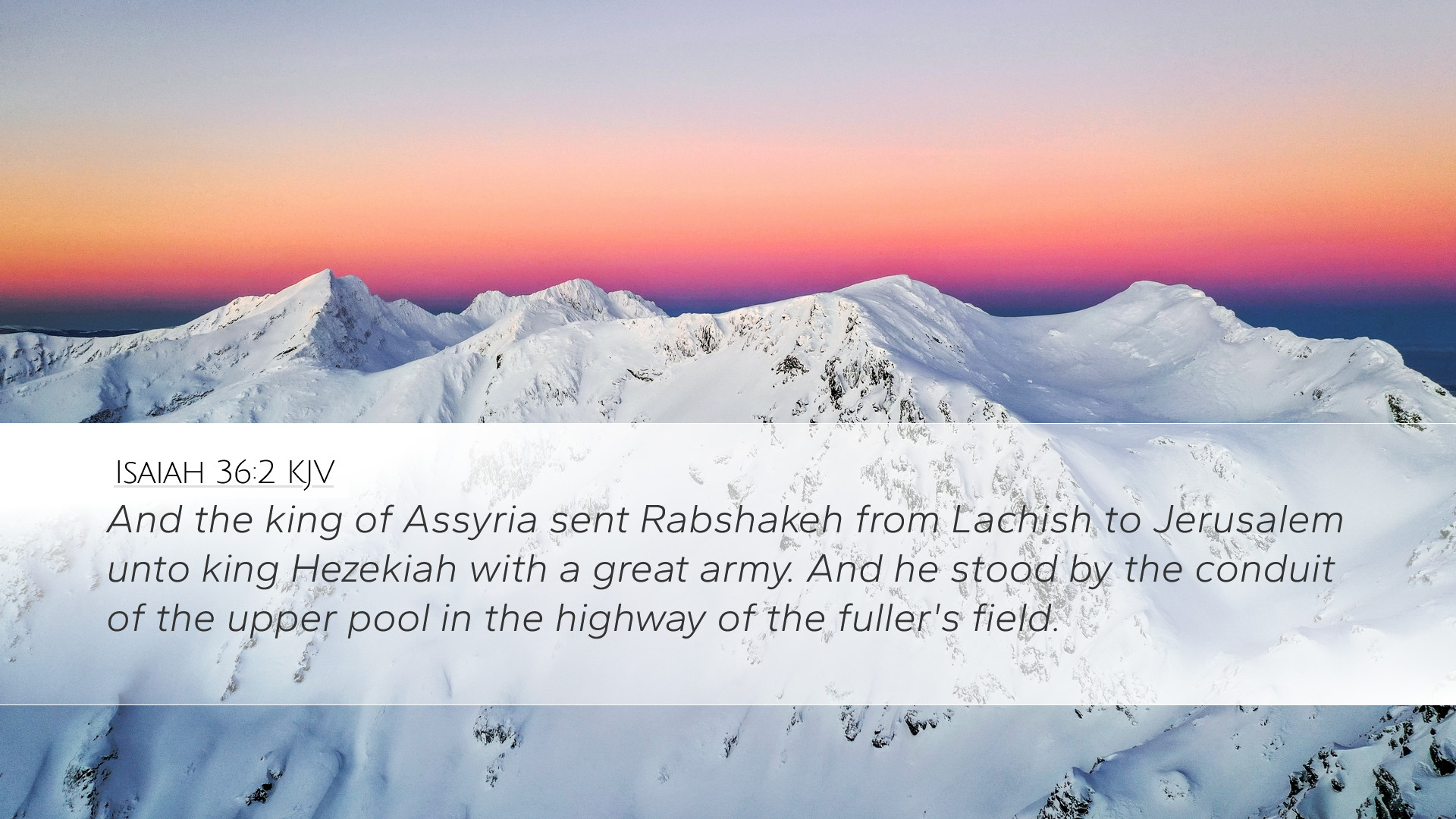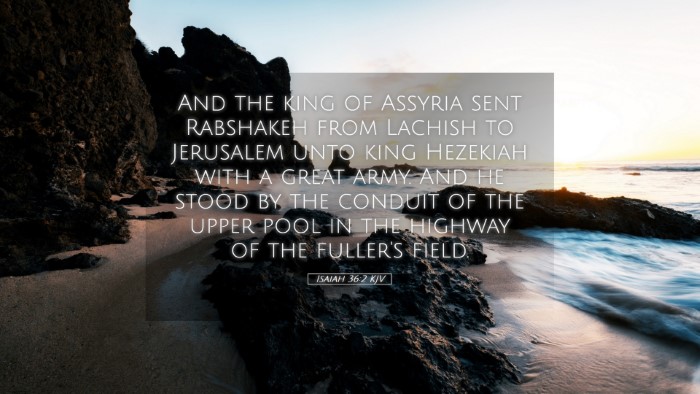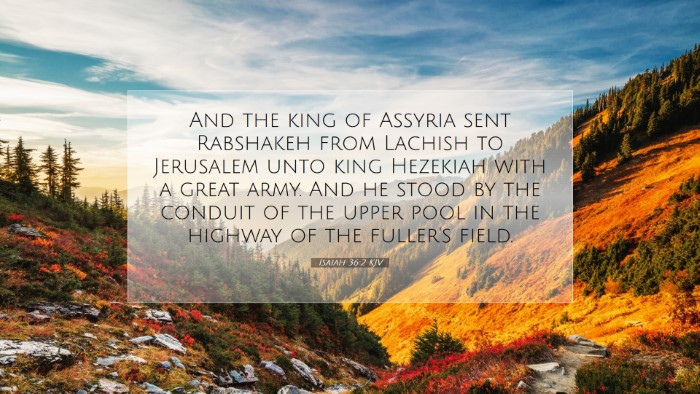Isaiah 36:2 - Commentary Summary
Isaiah 36:2 states: "And the king of Assyria sent Rabshakeh from Lachish to Jerusalem unto king Hezekiah with a great army. And he stood by the conduit of the upper pool in the highway of the fuller's field." This verse marks a significant moment in the historical narrative of the Assyrian threat against Judah, offering rich resources for theological reflection and understanding.
Context and Historical Background
The context of Isaiah 36 is critical for interpreting the verse properly. At this point, the kingdom of Judah, under King Hezekiah, is facing dire threats from the Assyrian Empire, which is characterized by its military might and ruthless conquests. The Assyrians had already captured many fortified cities of Judah, prompting national fear and uncertainty.
Insights from Commentaries
Matthew Henry
Matthew Henry emphasizes the relentless nature of the Assyrian campaign against Judah. He discusses the importance of the messenger, Rabshakeh, who is dispatched to deliver a message from King Sennacherib of Assyria. Henry notes that Rabshakeh's approach is strategic, as he chooses a prominent location—the conduit of the upper pool—where he can maximize his visibility and, symbolically, the tension of the situation.
Albert Barnes
Albert Barnes draws attention to the geographical significance of the upper pool. This location is not accidental; it reflects the state of Jerusalem's defenses and the vulnerability of Hezekiah’s kingdom. He points out that Rabshakeh's approach is intended to create fear and undermine confidence in God’s protection, a tactic often used in warfare to demoralize the enemy.
Adam Clarke
Adam Clarke provides a detailed examination of the character of Rabshakeh. He suggests that he is not merely a soldier, but a skilled diplomat who utilizes psychological warfare to instill dread among the Judean people. Clarke links the mention of the fuller's field to the need for purification and cleansing, contrasting the spiritual state of Jerusalem with the imminent danger they face.
Theological Themes
Isaiah 36:2 introduces several theological themes that can be explored in depth:
- The Sovereignty of God: Despite the apparent strength of Assyria, God's ultimate control over nations and leaders is paramount. The Assyrians serve as instruments for God's purposes, even in their pagan motives.
- Human Vulnerability: The physical location of Rabshakeh’s speech symbolizes the terrified and vulnerable state of Judah. This reflects humanity's propensity to rely on visible power rather than spiritual strength.
- Faith and Doubt: Hezekiah’s response to the Assyrian threat further emphasizes the struggle of faith amidst fear. The chilling effect of Rabshakeh's words showcases the battle between unwavering trust in God versus apprehensive doubt.
Applications for Today
For modern readers, particularly pastors and theologians, Isaiah 36:2 offers numerous applications:
- Spiritual Warfare: This verse serves as a reminder that the struggle between faith and fear is ongoing. Pastoral leaders can encourage congregations to recognize that challenges and adversities do not define God's presence or power.
- Trust in Trials: Hezekiah’s actions in response to Assyria's threats can guide believers on how to approach crises. Prayer and seeking divine wisdom become critical in times of distress.
- Understanding Cultural Pressures: Just as Rabshakeh employed rhetoric to influence and intimidate, believers today must discern cultural messages that challenge their faith and rely on spiritual grounding instead.
Conclusion
Isaiah 36:2 encapsulates a pivotal moment in Judean history marked by the confrontation between a powerful empire and a beleaguered kingdom. Through the insights of esteemed commentators like Matthew Henry, Albert Barnes, and Adam Clarke, readers gain a deeper understanding of the text's implications for faith, warfare, and God's sovereignty. For pastors, students, and scholars, this verse serves as a rich source of reflection on God's presence in times of adversity and the ongoing battle for trust amidst overwhelming odds.


